Buttery Walnut Flatbread

 Add to favorites
Add to favorites
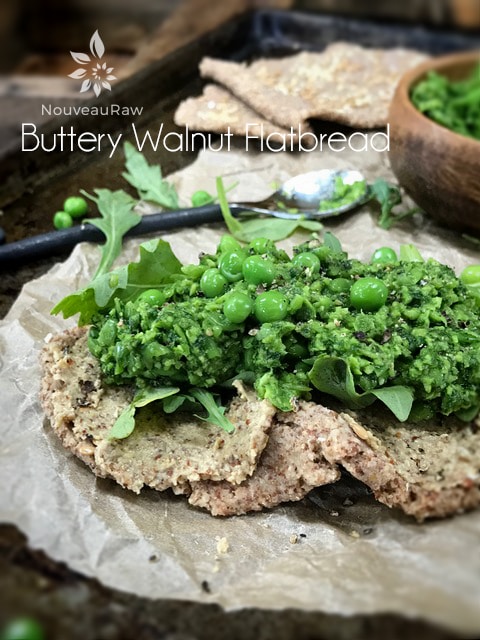
~ raw, vegan, gluten-free, paleo ~
Now, before you get all excited about butter melting into this flatbread—hold up! There’s actually no butter in this recipe. I called it “buttery” because those walnuts bring that rich, buttery flavor all on their own.
But wait, there’s more than just flavor going on here! Walnuts are one of the richest sources of Omega-3 fatty acids—specifically Alpha-Linolenic Acid (ALA)—right up there with salmon and oily fish. So, that old wives’ tale about walnuts looking like little brains and being brain food? Yeah, turns out it’s spot on. I don’t know about you, but I could definitely use a little brain boost now and then.
And here’s a fun fact: walnuts are packed with melatonin, a hormone produced by your pineal gland that’s key to getting a good night’s sleep. So munching on these might just help you catch some quality Z’s.
If you’ve ever noticed walnuts taste a bit bitter, it’s because of tannins in the thin skin surrounding the nut. Soaking and dehydrating the walnuts helps wash out that bitterness without roasting (which is the usual go-to). Since we’re aiming to keep things mostly raw here, soaking is our secret weapon.
A quick heads-up: walnuts have a high-fat content, which means they can go rancid if left out too long. Always store them airtight in the fridge or freezer, and always taste-test before tossing them into your recipe. Because nothing ruins a dish faster than a rancid nut. Yukka.
One last thing before you head to the kitchen—I used almond pulp as the base for this flatbread, and I can’t recommend it enough. It gives the bread a light, airy texture and solid structure. You might wonder if whole nuts would work, but I haven’t tried it myself. Feel free to experiment, but fair warning: it’ll probably make your flatbread much denser.
Enjoy the nutty, buttery goodness! blessings, amie sue
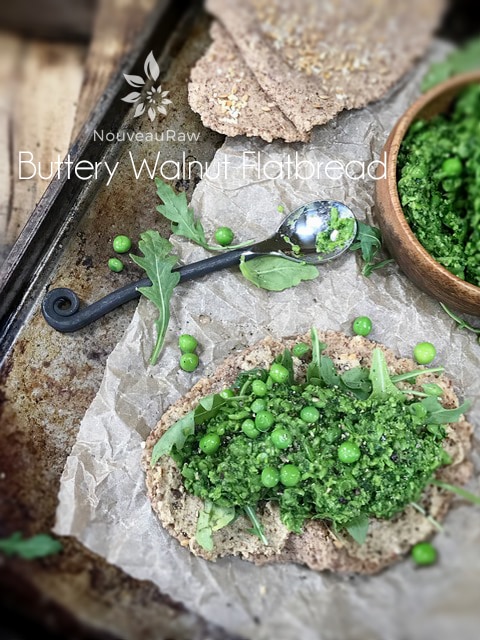 Ingredients:
Ingredients:
yields 20 flatbreads (1/4 cup each)
Preparation:
- In the food processor, fitted with the “S” blade, process the walnuts down to a small cornmeal size.
- Be careful that you don’t over-process the walnuts; it will cause too much of the oils from the nuts to be released.
- Add the ground flax, hemp seeds, and salt. Pulse together and place it in a medium-sized bowl.
- Add the almond pulp and 1/2 cup of water. Mix well with hands.
- If the batter feels too dry and crumbly, add a few more tablespoons until it is moist enough to stick together.
- I used 1 cup of water, but it depends on how much moisture is left in your almond pulp.
- To create the flatbread, I created 1/4 cup-sized balls of dough.
- Place the dough ball in between two teflex sheets or wax paper and with a rolling pin, flatten out into a long strip or whatever size, shape, and thickness you want.
- I do two balls at the same time, spaced about 2″ apart.
- Fold the teflex sheet over, laying the rolled-out cracker into the palm of your hand and then gently peel the teflex sheet off. If you rolled it too thin, it would be hard to get off.
- With the flattened dough now sitting in your hand, cup your hand as you turn it over and lay the dough on the mesh sheet.
- By cupping your hand a bit, it causes folds or ripples in the dough.
- You can skip this process and just lay them flat on the mesh sheet.
- I like creating that “cooked appearance” but creating lumps and bumps as though the heat bubbled the dough. Silly, perhaps, but fun.
- Sprinkle extra hemp seeds and coarse sea salt on top of each cracker.
- Dehydrate at 145 degrees for 1 hour, then reduce to 115 degrees (F) for 6-10 hours or until dry.
- Store in an air-tight container for 1-2 weeks.
- For more fun ideas on how to use this recipe, check out the following links; Raw Sweet Pea & Brussels Sprout Crostini and Raw Sweet Pea and Brussels Sprout Dip Flatbread Tower.
The Institute of Culinary Ingredients™
- Hemp seeds don’t require soaking. Click (here) to learn more.
- What is Himalayan pink salt, and does it matter? Click (here) to read more about it.
- Learn how to grind your own flax seeds for ultimate freshness and nutrition. Click (here).
Culinary Explanations:
- Why do I start the dehydrator at 145 degrees (F)? Click (here) to learn the reason behind this.
- When working with fresh ingredients, it is essential to taste test as you build a recipe. Learn why (here).
- Don’t own a dehydrator? Learn how to use your oven (here). I do, however honestly believe that it is a worthwhile investment. Click (here) to learn what I use.
-
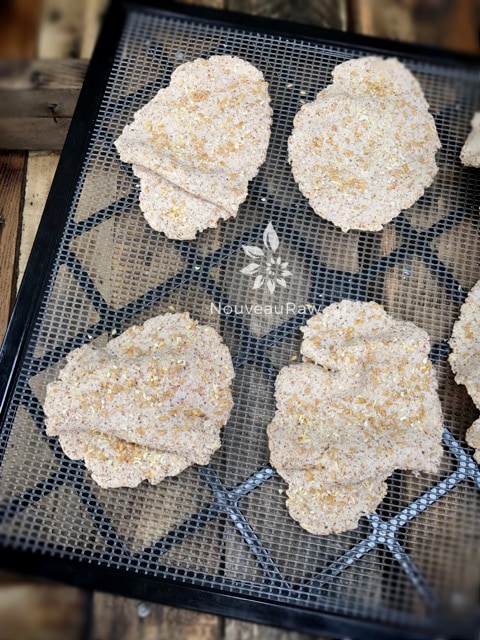
-
Formed and ready for the dehydrator.
-
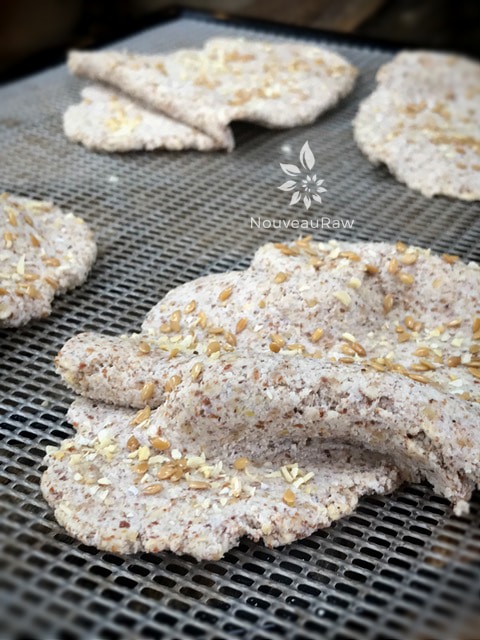
-
Close up.
-
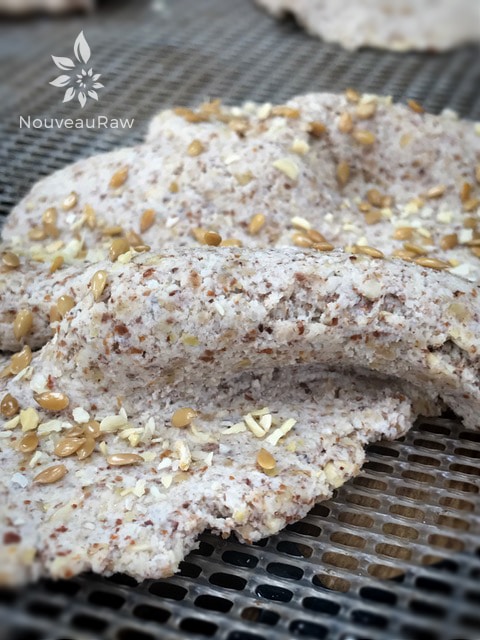
-
Super close up.
-
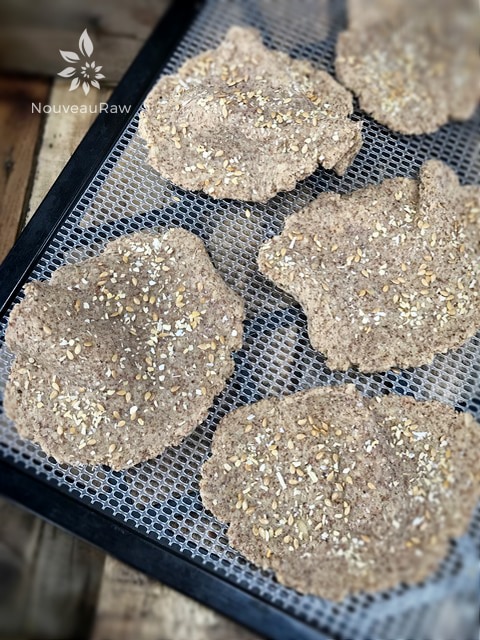
-
Here they are dried.
-
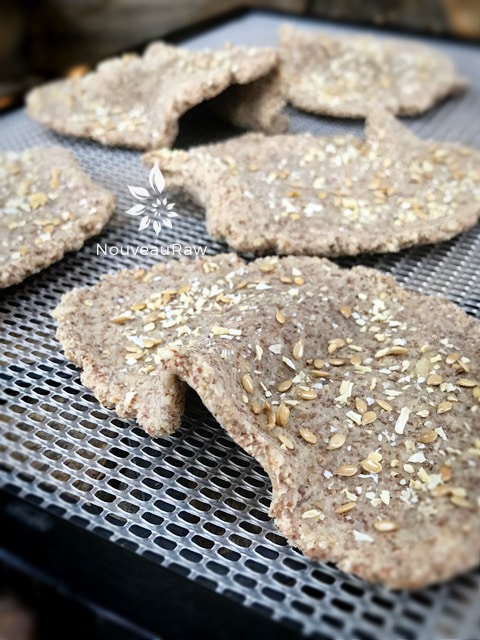
-
Close up. I want you to see all the goodness!
-
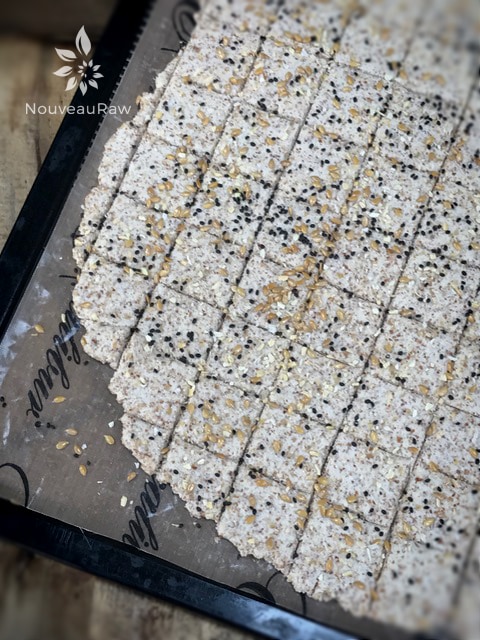
-
Extra dough rolled into small crackers.
-
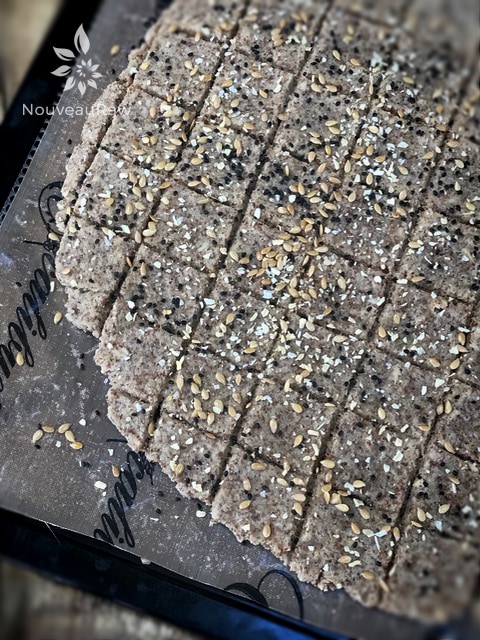
-
This is what they look like once dehydrated. A bit darker and crunchy.
-
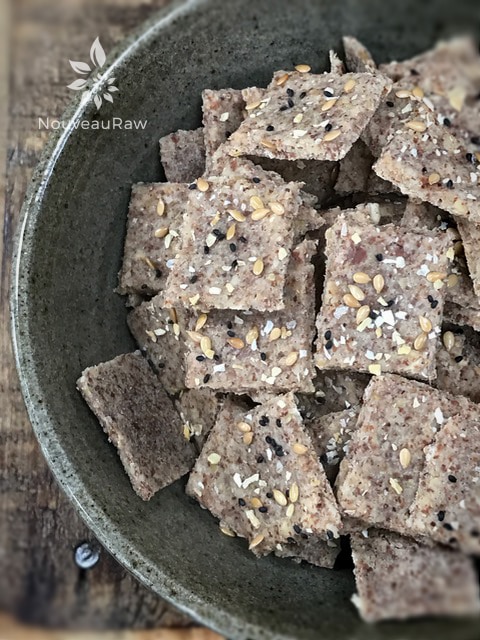
-
Perfect for a snacking.
-
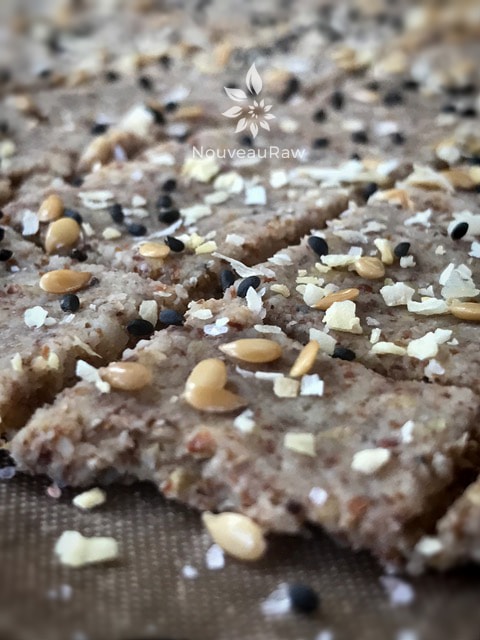
-
Close up.
-
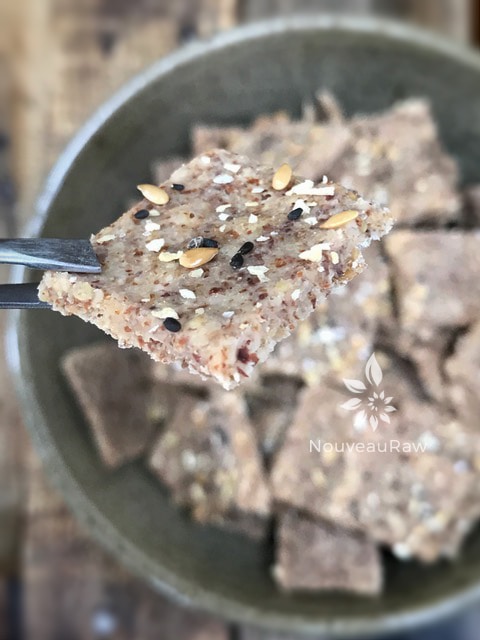
-
Yes, we like our close ups here. :)
© AmieSue.com
Tags: Almond Pulp, Dairy Free, Dehydrated, Gluten Free, Refined Sugar Free, Soy Free, sugar free, Vegan



 Add to favorites
Add to favorites
 Ingredients:
Ingredients:
This is so interesting, thank you.
Going to make this flatbread for the weekend……….
Your welcome Marine… please keep me posted on how it goes. amie sue
i bet lots of fresh herbs would be great in this. k
Indeed kate, indeed.